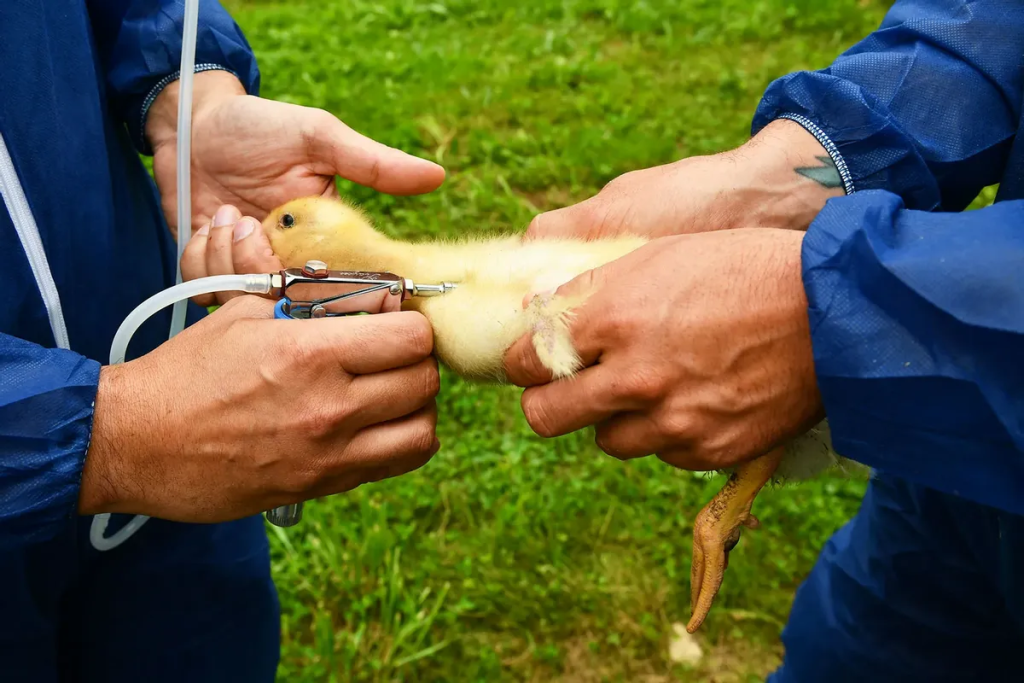The year 2025 has kicked off with a surge in respiratory illnesses, leaving many wondering because so many people are getting sick. With a new bird flu outbreak in California, the ongoing COVID-19 threat, and the rise of human metapneumovirus (HMPV), concerns are growing about the impact on public health. Let’s break down what’s happening and whether there’s cause for alarm.
Bird Flu Outbreak: What You Need to Know
A rare strain of bird flu, H5N9, has been discovered on a duck farm in California. The World Organization for Animal Health confirmed that this is the first outbreak of H5N9 in U.S. poultry. In addition to this, the more common H5N1 strain has also been detected on the same farm in Merced County, resulting in the culling of nearly 119,000 birds to prevent further spread.
Authorities are closely monitoring the situation. While the risk of human infection is currently unknown, experts warn that the longer the virus circulates, the greater the chance of it mutating into a more dangerous form. This raises concerns about whether bird flu could eventually spread among humans and spark a new pandemic.
How Dangerous is H5N9?
Unlike the more familiar H5N1 strain, H5N9 is relatively new in the U.S. The CDC and USDA are conducting studies to determine if it poses a risk to humans. While human cases of bird flu remain rare, the possibility of the virus adapting to infect humans cannot be ruled out.

Additionally, there has been growing concern about pets getting infected. Cases of domesticated cats and dogs contracting H5N1 have been reported, with some infections linked to raw pet food containing contaminated poultry. The FDA has issued new guidelines for pet food safety, urging manufacturers to take extra precautions.
Is This Another Pandemic in the Making?
At this stage, a human pandemic from bird flu is not inevitable. However, scientists are keeping a close eye on developments. In December 2024, researchers discovered that a single mutation allowed bird flu to infect human cells more effectively. This means that, given enough time, the virus could evolve to spread more easily between humans.
The CDC has assured the public that the current risk remains low, but new cases and mutations could change that quickly. Health officials recommend staying informed and avoiding direct contact with wild birds or sick animals.
HMPV: The ‘Mystery Virus’ That’s Not So Mysterious
Another virus making headlines is human metapneumovirus (HMPV). Some media outlets have sensationalized it as a “mystery virus,” but the truth is that HMPV has been around for decades.
HMPV is a respiratory virus that causes symptoms similar to the common cold or flu. Most people have been infected with it at some point in their lives, but it rarely causes severe illness. However, for infants, older adults, and those with weakened immune systems, HMPV can lead to serious respiratory complications, including pneumonia.
Why is HMPV in the News Now?
Health officials have noticed an increase in HMPV cases in China, the UK, and parts of the United States. In Britain, cases have surged, prompting health warnings and renewed calls for masking in public places. In the U.S., states like Kansas, Iowa, Missouri, and Nebraska are already seeing an uptick in cases.
The timing is particularly concerning because the Lunar New Year holiday at the end of January could contribute to further spread as millions travel and gather for celebrations. While HMPV isn’t new, its current spike is something health officials are watching closely.
Flu vs. COVID-19: What’s Making People Sick This Winter?
While COVID-19 is still around, this winter’s biggest health issue has been seasonal influenza. According to recent data, flu-related hospitalizations are three times higher than COVID-19 admissions. Public health experts believe several factors are contributing to this:
- Many people were exposed to COVID-19 in summer 2024, building some immunity for the winter season.
- More individuals received updated COVID-19 vaccines, reducing severe cases.
- The dominant COVID-19 variant, XEC, is not significantly different from previous strains, meaning it hasn’t evolved to bypass existing immunity.
However, other viruses are making up for the decline in COVID cases. Walking pneumonia, RSV, norovirus, and bird flu are all adding to the seasonal illness burden, making it feel like “everyone is sick” right now.
What’s Next?
Health experts are urging people to remain vigilant. Here’s what you can do to stay safe:
- Get Vaccinated: Flu and COVID-19 vaccines remain the best defense against severe illness.
- Practice Good Hygiene: Wash hands frequently and avoid touching your face.
- Monitor Symptoms: If you feel unwell, stay home and seek medical advice if symptoms worsen.
- Be Cautious with Pets: Avoid feeding raw meat to pets, as it could be contaminated with bird flu.
As research continues, scientists will be closely monitoring these viruses and their potential impacts. For now, while there’s no need to panic, staying informed and taking precautions is key to protecting yourself and your community.
Disclaimer: This article has been meticulously fact-checked by our team to ensure accuracy and uphold transparency. We strive to deliver trustworthy and dependable content to our readers.

